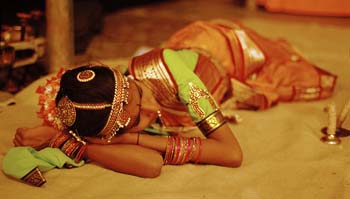First, there's a great quote from John Searle:
Searle also noted a “certain irony” that the Western canon, from Socrates to Marx, which had once been seen as “liberating,” was now seen as “oppressive.” “Precisely by inculcating a critical attitude,” Searle wrote, “the ‘canon’ served to demythologize the conventional pieties of the American bourgeoisie and provided the student with a perspective from which to critically analyze American culture and institutions. ... The texts once served an unmasking function; now we are told that it is the texts which must be unmasked.”
I'm not sure that's true -- the purpose of a Canon, one could just as easily argue, is to create a bourgeois consciousness. Only the earlier generation of "leftyprofs," I think, felt the point was to unmask that consciousness rather than nurture it.
In one sense the debate has been superseded by what's happened in American universities since the 1980s, which is a growing sense that the humanities constitute only a minor component, rather than the core. Other segments of the university -- the sciences, business, engineering -- get the lion's share of funding (they also generate their own funds), and also the lion's share of the university administration's attention. Humanities academics are now in some sense all on the same side -- we have to prove we're still relevant:
All this reflects what the philosopher Martha Nussbaum today describes as a “loss of respect for the humanities as essential ingredients of democracy.” Nussbaum, who panned Bloom’s book in The New York Review in 1987, teaches at the University of Chicago, which like Columbia has retained a Western-based core curriculum requirement for undergraduates. But on some campuses, “the main area of conflict is trying to make sure that the humanities get adequate funding from the central administration,” Nussbaum wrote in an e-mail message, adding, “Our nation, like most nations of the world, is devaluing the humanities vis-à-vis science and technology, so constant vigilance is required lest these disciplines be cut.” Louis Menand, a Harvard English professor and New Yorker staff writer who serves on Harvard’s curriculum reform committee, concurs: “The big question for humanists is, How do we explain why what we do is important for people who aren’t humanists? That’s been tough, really tough.”
It's rare that I see a Louis Menand or Martha Nussbaum quote I don't like, and this is no exception.
The second section of the essay gets into some more specific Canon questions, and brings quotes from Stanley Fish, Philip Roth, Michael Berube, Gerald Graff, Tony Judt, and John Guillory. There is some of the usual to-and-fro over Toni Morrison and identity politics. I think Gerald Graff's point is worth considering:
To some, another question is how to get students to read critically in the first place. “What does it profit progressives to get minority writers like Walker and Black Elk into the syllabus if many students need the Cliffs Notes to gain an articulate grasp of either?” asked Gerald Graff, an English professor at the University of Illinois at Chicago who has written on the canon wars.
Arguably, the way to make sure students have the tools to interpret great works of literature by Shakespeare and James Joyce and Salman Rushdie is to put more emphasis on interpretive method, not to go back to only teaching Shakespeare. This might be something that conservatives and progressives in the English department could all agree on, if, first, conservatives could be convinced that everything wouldn't be better if the English Department restored its old, Canon-backed "prestige" (most of our students aren't aware that it's gone). As for what "progressives" need to be convinced of, it gets a little more complicated. It's more than just identity politics -- "disciplinary balkanization" might be a more accurate way to describe what ails us.
